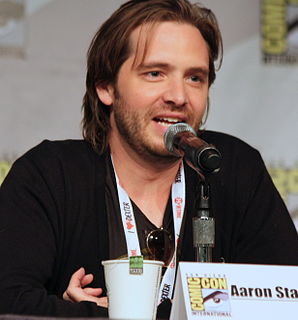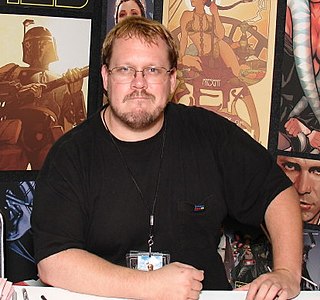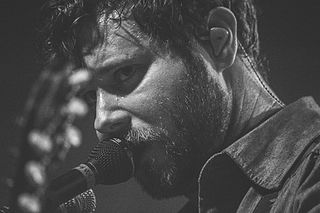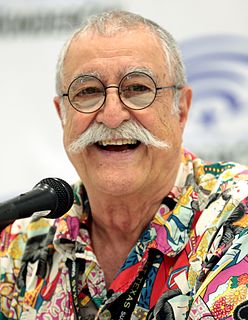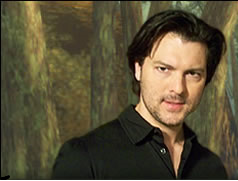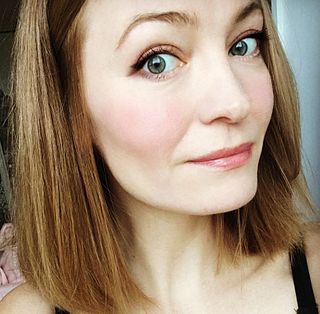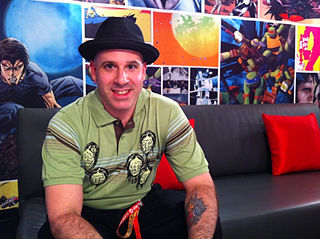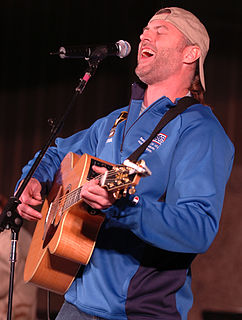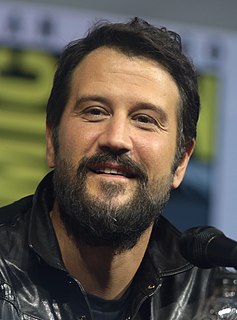A Quote by Aaron Stanford
I didn't follow the whole 'X-Men' story because it got too complicated. I'd pick up a comic book and have no idea what was going on.
Related Quotes
I remember somebody saying, "I feel really bad for kids growing up around iPads right now. It's just too complicated. Life's too complicated." I think, yeah, but I remember being a kid and holding up a new piece of technology that was made in the '80s and my grandparents going, "Oh, it's too complicated." It didn't seem complicated to me.
The format of the book was the idea of my wonderful editor, Stephen Segal. Stephen and I had worked together before, on projects for the Interstitial Arts Foundation, and when he got the idea for an accordion-style book, he called and asked if I could write the story for it. I told him that I would love to try! And I knew it had to be a love story, because that's the sort of story you really want to hear from both perspectives. I mean, imagine if Pride and Prejudice were told from Darcy's perspective as well as Elizabeth's. It would be quite a different story!
A comic book is the opposite of a cartoon. In a cartoon, you want to simplify the idea, so when they look at it at a glance, they get it. Boom. Simple. Direct to the point. But when you're drawing Groo, now it's a narrative, a story. You want the viewer to get involved in the story. You want him to feel like he's in the town to follow your main character. So I love to add lots and lots of things in it. Things that people will enjoy going back to and say, "Oh yeah, that's how a market must have looked in this fantasy world, with people selling meat here and dishes here."
We have a whole other division, where we actually literally take the comic book and animate it. Our feeling was that, if this was going to be our show and that it was going to be a brand new show, it has to be more adventures with these characters, in the same way that, through the years, there have been long runs on the comic book series. It's the same characters, with different voices, along the way.
I came to think that nobody from England could draw American comic books, because they were clearly all done by this sort of Mafia, all these guys with Italian and Irish names who had the whole thing sewn up. It was actually seeing a comic book drawn by Barry Smith, who was about my age, and English.
I got into comics about the same time as music. By 12 years old, I had discovered my dad's killer comic book collection filled with Silver Age books from his youth...early Spider-Man, Thor, Fantastic Four, The Hulk, Detective Comics, Action Comics, you name it. Seeing those old books got me interested in new comics, so my friends and I would hit the local comic shop every Saturday to pick up the cool titles of my generation.
I came in with a very specific idea about what a Doctor Strange movie should be, which was rooted in the comics, and I thought it should be as weird and as visually ambitious compared to modern comic book movies as the comic was when it showed up in the '60s compared to other comic books at the time.
Comic books are just a way to show a story. Then there are the movies, and television and exhibits like this that take the stories and make them seem so realistic. In the comic book, you're just reading a story - hopefully a good, exciting story that whets your appetite for all of this stuff to come.
